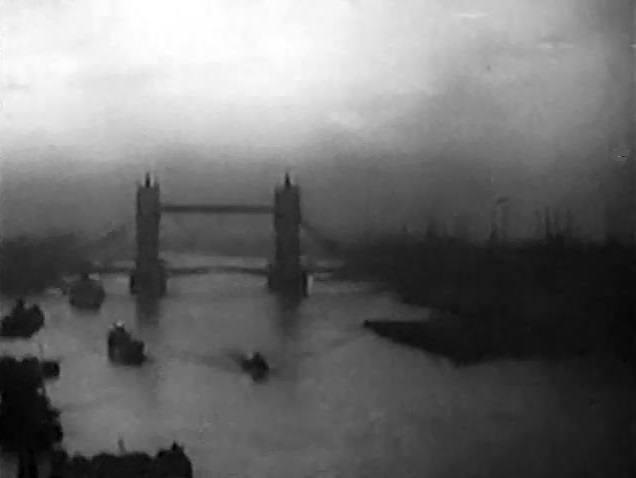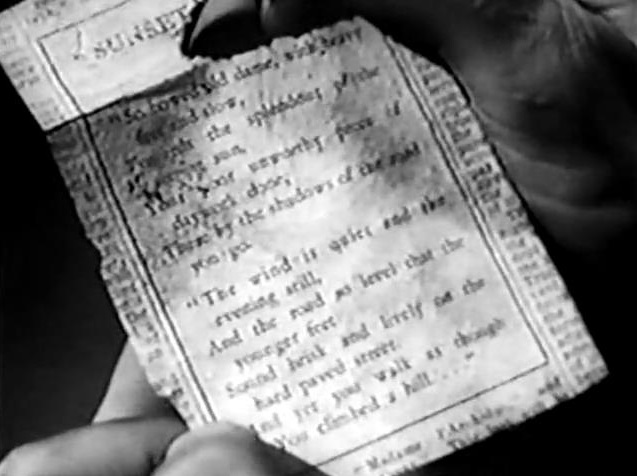Coal Face
The vast amounts of coal required, the daily labor to get them,
the “transport and distribution” that double the price, where it
all goes.
“The basic industry of Britain.”
Score by Benjamin Britten, verses by W.H. Auden.
Went the Day Well?
A mad film properly remade as an American comedy by Norman
Jewison in The Russians Are Coming The
Russians Are Coming, and still remembered at home vividly in Wolf
Rilla’s Village of the Damned.
British troops billeted on Bramley End one weekend are a Nazi
regiment with radar-jamming equipment for the Monday morning invasion. The
style is noteworthy for the representation of lucky chances turning against the
Germans as the villagers strike back.
“The wilderness of
this world.”
The Ealing Nickleby would be Charles Dickens’
Kafkaesque tale of the careers of a disinherited gentleman that was a model to
Marcel Pagnol, and was filmed by Cavalcanti almost entirely in deep chiaroscuro
(the technical term for this is “Rembrandt lighting”) as practically
a biopic of Shakespeare (or Eliot, or Mallarmé). The Man with the Golden Arm
has a similar dénouement.
This is among the best of the Dickens adaptations, and a
brilliant success, a great film, inestimable even, because of the
forthrightness of Dickens and the attentiveness of Cavalcanti. As soon as the
author had dipped his quill and indited the name of Dotheboys Hall, no director
of Nicholas Nickleby could ever succumb to temptation and “do
Dickens,” on pain of bringing forth a nonentity, wind. Cavalcanti
realizes this, and it keeps him jumping, as great wits are said to do. He is,
in fact, so keen to let no superfluous second of his film dishonor the founder
of the feast, that he not only acquires a scalpel-like acuity of perception in
his rapid cutting, he finds inspiration and time for a bit of business like the
end of the scene at the Hall.
Nickleby has been silently attentive during Mr. Squeers’
morning lesson in ignorance and servility, and now is called upon to read to
the class. Cavalcanti stops his apparatus at this moment and slowly dollies in
on Nickleby reading the first few lines of The Pilgrim’s Progress.
On the words, “I dreamed a dream,” he dissolves to Nickleby’s
sister in black, seated amidst the trappings of a fashionable establishment,
and dollies out from her at an angle, before resuming his discourse.
The effect of this, like everything else Cavalcanti does with Nicholas
Nickleby, is to create a constant cinematic discourse running along with
Dickens never out of its sight, and only relying on him entirely at moments of
great delicacy, as when his description of the Infant Phenomenon is worth a
close-up of the creature.
The acting of course is shown to advantage by this directorial
method, as it becomes structural in that Cavalcanti cuts away at the precise
moment when the fullest expression has been reached in any particular shot, and
initiating at once the response and continuation.
From Dotheboys Hall to The Saracen’s Head (debtor’s
prison has bars on the windows and a turnkey at the door), Lord Berners’
score is the charming cap lifted over the jolly thing.
They Made Me a Fugitive
Cavalcanti’s Oliver Twist, set at the time of
filming, just after the war.
The man from the RAF falls amongst thieves and, being abstemious
when it comes to the drug trade and the murder of a policeman, sets them off
thinking he’s an amateur not to be trusted, they frame him for the murder
he tried to prevent.
He escapes from prison and returns to set things right at the
undertakers’ used by the gang as a front.
The two strands of invention are jocularity and viciousness, and
both come from Dickens though another novelist is credited with the modern
framework, so that Cavalcanti’s Nicholas Nickleby might almost be
seen as a study.
Otto Heller has the cinematography on the director’s
characteristic style.
For
Them That Trespass

Time of the Abdication. Young
poet’s first time in print, afterward secretary to the vicar. Says mum,
“how splendid, and if you find you’re not clever enough to be a
writer, you could always be a clergyman.”
The Wild Swan, Lenten Town, in the name of
Kit Marlowe.
Cavalcanti’s “the one that pulls the train, the
engine only ‘elps ‘im,”
cinematography Derick Williams, script J. Lee
Thompson with Douglas-Home from the author of Gallipoli (dir. Peter Weir), music Philip Green.
“I find the witness’s comments on the police
superfluous.”
“Aye, I agree, my Lord...”
“A poet of considerable genius who flourished in the days
of Queen Elizabeth...”
“A first-class play,” The Area Steps.
Lean’s Oliver Twist
was the year before.
A volume in the prison library at Pentonville, Psalms
of London, a shelf of books. “There’s nothing like a murder
on the premises for keeping down the rent,” sphinx and all. “As an
author I’m accustomed to being pestered by lunatics.”
Bosley Crowther
of the New York Times, “a drab and dreary little film”. Time Out, “the poetry and the squalor”.
TV Guide, “an interesting
programmer”. Halliwell’s Film
Guide, “tedious”.
And so, the homicidal railway fireman turned engine driver dies
struck by a train in a tunnel, the rich rewarded author goes down for misprision
of felony, the burglar awa’ in Glasgow that night’s a free man, cf. Pinter’s The Dwarfs.
